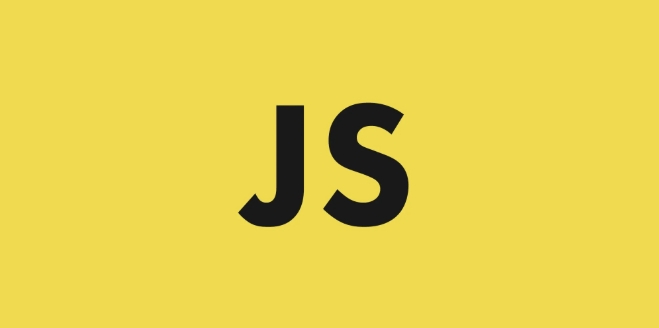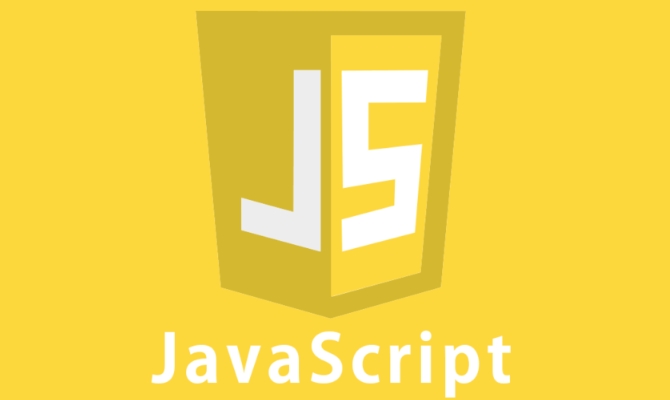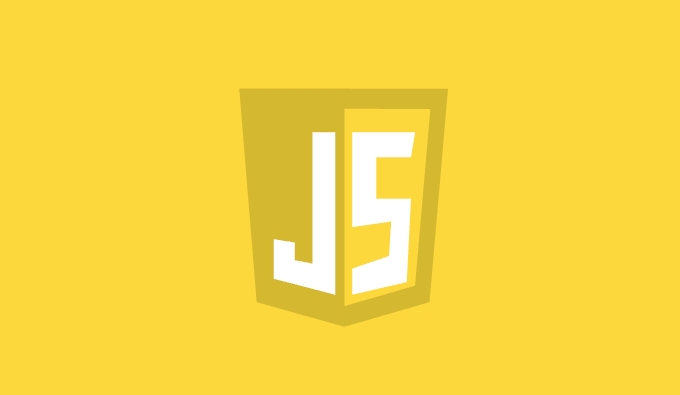A JS roundup for mastering bind, call, and apply methods
JavaScript bind, call and apply are used to control the pointing of this in the function. 1.bind creates a binding function and can preset parameters, which is suitable for maintaining the context when event processing or transferring functions; 2.call executes the function immediately and passes parameters one by one, which is suitable for borrowing object methods; 3. apply is similar to call but passes parameters in the form of an array, which is suitable for scenarios such as array parameters or finding the maximum/minimum value.

If you're diving into JavaScript, understanding bind , call , and apply is a must. These methods let you control the value of this in functions, which becomes super useful when dealing with object methods or borrowing functions from other objects.

Let's break it down.

What bind does and when to use it
The bind method creates a new function that, when called, has its this keyword set to a specific value. Unlike call and apply , bind doesn't immediately invoke the function—it just returns a bound version of it.
This is handy in situations where you need to pass a function around but still want to make sure it runs in the right context. A common example is event handlers:

const user = {
name: 'Alex',
greet() {
console.log(`Hello, ${this.name}`);
}
};
const button = document.getElementById('myButton');
button.addEventListener('click', user.greet.bind(user)); Without binding, this.name would be undefined because the context changes when the function is passed separately from the object.
You can also pre-set arguments with bind . Like this:
function multiply(a, b) {
return a * b;
}
const double = multiply.bind(null, 2);
console.log(double(5)); // 10 Here, we fixed the first argument to 2, so every time double is called, it multiples 2 by whatever number comes next.
How call works with immediate execution
The call method lets you call a function with a given this value and arguments provided individually.
It's especially useful when you want to borrow a method from one object and use it on another:
const cat = {
sound: 'Meow!',
makeSound() {
console.log(this.sound);
}
};
const dog = {
sound: 'Woof!'
};
cat.makeSound.call(dog); // Outputs: Woof! In this case, even though makeSound belongs to cat , we're calling it with dog as the context.
Also, if you have a function that expects multiple parameters, call allows you to pass them directly:
function logData(name, age) {
console.log(`${name} is ${age} years old.`);
}
logData.call(null, 'Sam', 30);
// Outputs: Sam is 30 years old. Using null as the first argument means we don't care about the this context here.
Apply is like call but take an array
The main difference between call and apply is how they accept arguments. While call takes comma-separated values, apply takes an array of arguments.
This comes in handy when working with functions that expect multiple parameters, but your data is already in an array:
function sum(a, b, c) {
return abc;
}
const numbers = [1, 2, 3];
console.log(sum.apply(null, numbers)); // 6 Another classic use case for apply is when you want to find the max or min in an array using built-in Math functions:
const values = [10, 5, 8, 12, 3]; const max = Math.max.apply(null, values); // 12
Before ES6 spread syntax ( ... ) was widely supported, apply was the go-to trick for this kind of task.
When to pick which one?
- Use
bindwhen you want to create a new function with a presetthisand/or arguments. - Use
callwhen you want to invoke a function immediately with individual arguments. - Use
applywhen you want to invoke the function with an array of arguments.
A few more quick tips:
- You can ignore setting
thisby passingnullorundefinedif the function doesn't rely on it. - Arrow functions don't have their own
this, so binding won't work on them—something to watch out for. - If you're dealing with callbacks,
bindis often your friend to preserve context.
That's the core of it. These methods are powerful once you get used to how they tweak function behavior. Not too complicated, but easy to misuse if you're not careful.
The above is the detailed content of A JS roundup for mastering bind, call, and apply methods. For more information, please follow other related articles on the PHP Chinese website!

Hot AI Tools

Undress AI Tool
Undress images for free

Undresser.AI Undress
AI-powered app for creating realistic nude photos

AI Clothes Remover
Online AI tool for removing clothes from photos.

Clothoff.io
AI clothes remover

Video Face Swap
Swap faces in any video effortlessly with our completely free AI face swap tool!

Hot Article

Hot Tools

Notepad++7.3.1
Easy-to-use and free code editor

SublimeText3 Chinese version
Chinese version, very easy to use

Zend Studio 13.0.1
Powerful PHP integrated development environment

Dreamweaver CS6
Visual web development tools

SublimeText3 Mac version
God-level code editing software (SublimeText3)
 How to create a stock candlestick chart using PHP and JS
Dec 17, 2023 am 08:08 AM
How to create a stock candlestick chart using PHP and JS
Dec 17, 2023 am 08:08 AM
How to use PHP and JS to create a stock candle chart. A stock candle chart is a common technical analysis graphic in the stock market. It helps investors understand stocks more intuitively by drawing data such as the opening price, closing price, highest price and lowest price of the stock. price fluctuations. This article will teach you how to create stock candle charts using PHP and JS, with specific code examples. 1. Preparation Before starting, we need to prepare the following environment: 1. A server running PHP 2. A browser that supports HTML5 and Canvas 3
 Recommended: Excellent JS open source face detection and recognition project
Apr 03, 2024 am 11:55 AM
Recommended: Excellent JS open source face detection and recognition project
Apr 03, 2024 am 11:55 AM
Face detection and recognition technology is already a relatively mature and widely used technology. Currently, the most widely used Internet application language is JS. Implementing face detection and recognition on the Web front-end has advantages and disadvantages compared to back-end face recognition. Advantages include reducing network interaction and real-time recognition, which greatly shortens user waiting time and improves user experience; disadvantages include: being limited by model size, the accuracy is also limited. How to use js to implement face detection on the web? In order to implement face recognition on the Web, you need to be familiar with related programming languages and technologies, such as JavaScript, HTML, CSS, WebRTC, etc. At the same time, you also need to master relevant computer vision and artificial intelligence technologies. It is worth noting that due to the design of the Web side
 Essential tools for stock analysis: Learn the steps to draw candle charts with PHP and JS
Dec 17, 2023 pm 06:55 PM
Essential tools for stock analysis: Learn the steps to draw candle charts with PHP and JS
Dec 17, 2023 pm 06:55 PM
Essential tools for stock analysis: Learn the steps to draw candle charts in PHP and JS. Specific code examples are required. With the rapid development of the Internet and technology, stock trading has become one of the important ways for many investors. Stock analysis is an important part of investor decision-making, and candle charts are widely used in technical analysis. Learning how to draw candle charts using PHP and JS will provide investors with more intuitive information to help them make better decisions. A candlestick chart is a technical chart that displays stock prices in the form of candlesticks. It shows the stock price
 How to use JS and Baidu Maps to implement map pan function
Nov 21, 2023 am 10:00 AM
How to use JS and Baidu Maps to implement map pan function
Nov 21, 2023 am 10:00 AM
How to use JS and Baidu Map to implement map pan function Baidu Map is a widely used map service platform, which is often used in web development to display geographical information, positioning and other functions. This article will introduce how to use JS and Baidu Map API to implement the map pan function, and provide specific code examples. 1. Preparation Before using Baidu Map API, you first need to apply for a developer account on Baidu Map Open Platform (http://lbsyun.baidu.com/) and create an application. Creation completed
 How to use JS and Baidu Maps to implement map heat map function
Nov 21, 2023 am 09:33 AM
How to use JS and Baidu Maps to implement map heat map function
Nov 21, 2023 am 09:33 AM
How to use JS and Baidu Maps to implement the map heat map function Introduction: With the rapid development of the Internet and mobile devices, maps have become a common application scenario. As a visual display method, heat maps can help us understand the distribution of data more intuitively. This article will introduce how to use JS and Baidu Map API to implement the map heat map function, and provide specific code examples. Preparation work: Before starting, you need to prepare the following items: a Baidu developer account, create an application, and obtain the corresponding AP
 How to use JS and Baidu Map to implement map click event processing function
Nov 21, 2023 am 11:11 AM
How to use JS and Baidu Map to implement map click event processing function
Nov 21, 2023 am 11:11 AM
Overview of how to use JS and Baidu Maps to implement map click event processing: In web development, it is often necessary to use map functions to display geographical location and geographical information. Click event processing on the map is a commonly used and important part of the map function. This article will introduce how to use JS and Baidu Map API to implement the click event processing function of the map, and give specific code examples. Steps: Import the API file of Baidu Map. First, import the file of Baidu Map API in the HTML file. This can be achieved through the following code:
 PHP and JS Development Tips: Master the Method of Drawing Stock Candle Charts
Dec 18, 2023 pm 03:39 PM
PHP and JS Development Tips: Master the Method of Drawing Stock Candle Charts
Dec 18, 2023 pm 03:39 PM
With the rapid development of Internet finance, stock investment has become the choice of more and more people. In stock trading, candle charts are a commonly used technical analysis method. It can show the changing trend of stock prices and help investors make more accurate decisions. This article will introduce the development skills of PHP and JS, lead readers to understand how to draw stock candle charts, and provide specific code examples. 1. Understanding Stock Candle Charts Before introducing how to draw stock candle charts, we first need to understand what a candle chart is. Candlestick charts were developed by the Japanese
 The relationship between js and vue
Mar 11, 2024 pm 05:21 PM
The relationship between js and vue
Mar 11, 2024 pm 05:21 PM
The relationship between js and vue: 1. JS as the cornerstone of Web development; 2. The rise of Vue.js as a front-end framework; 3. The complementary relationship between JS and Vue; 4. The practical application of JS and Vue.







